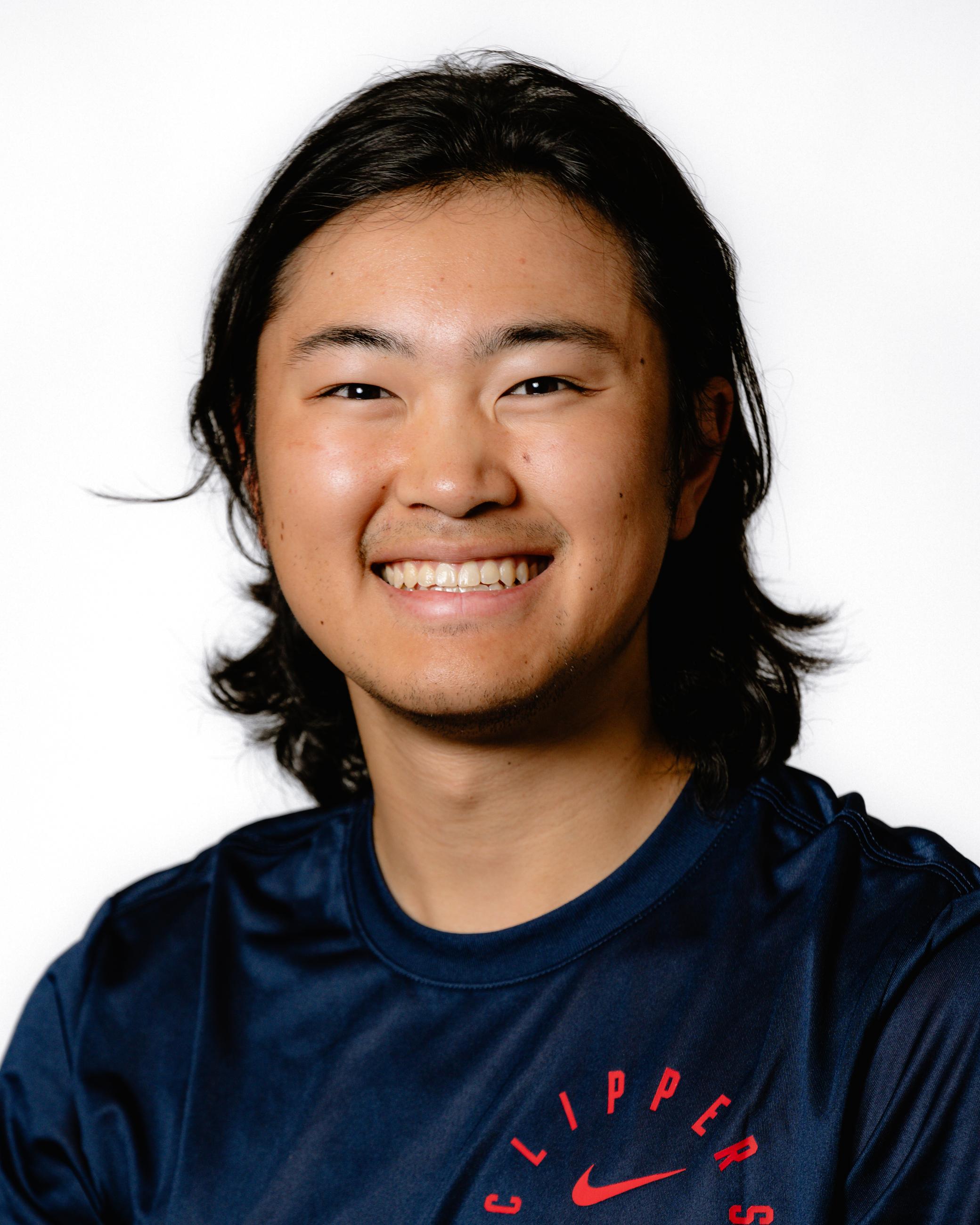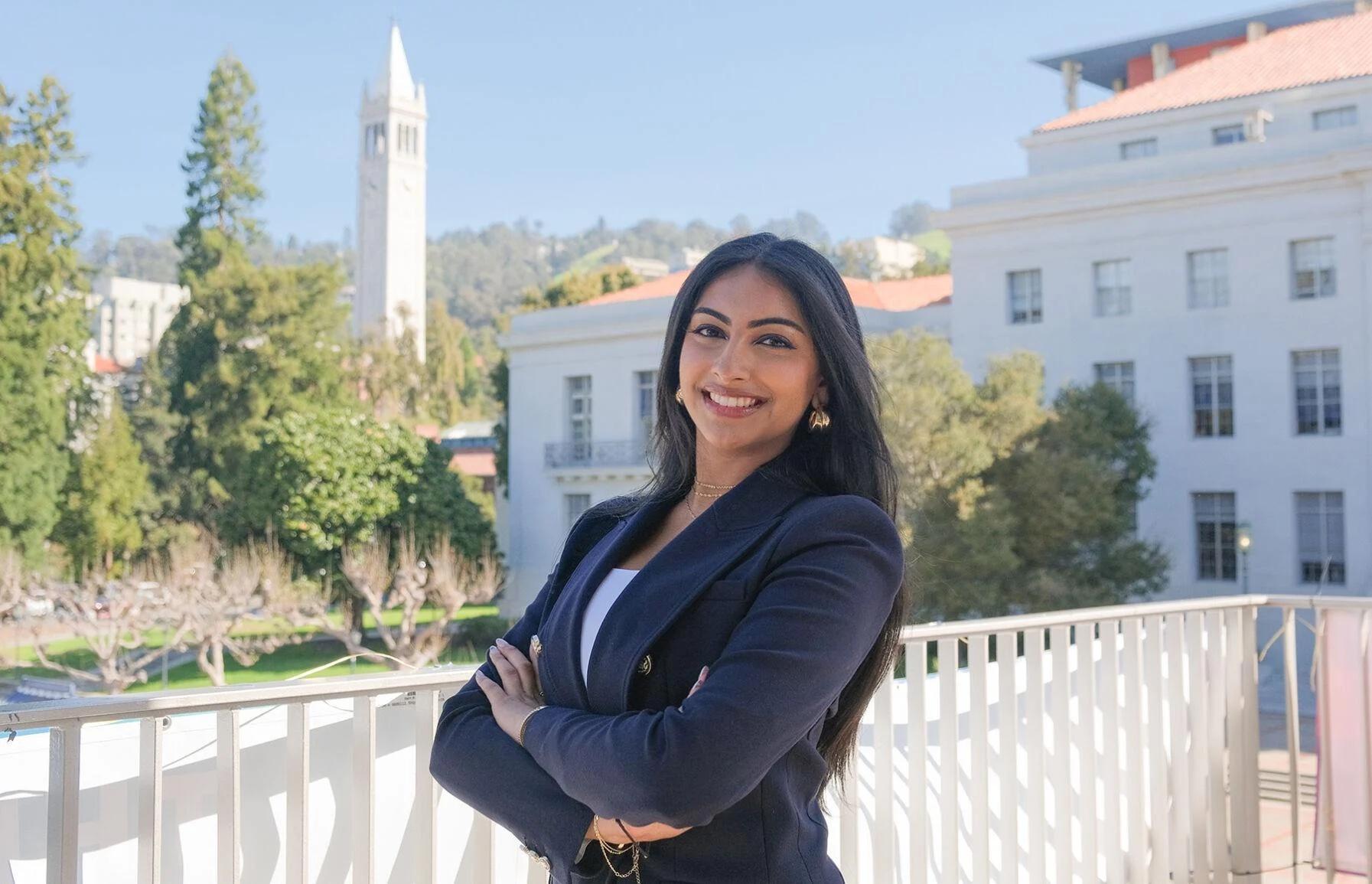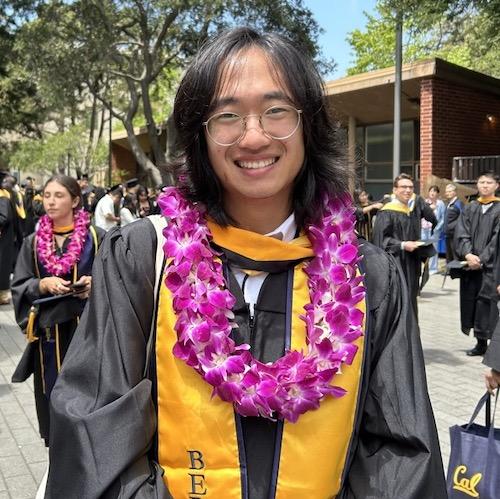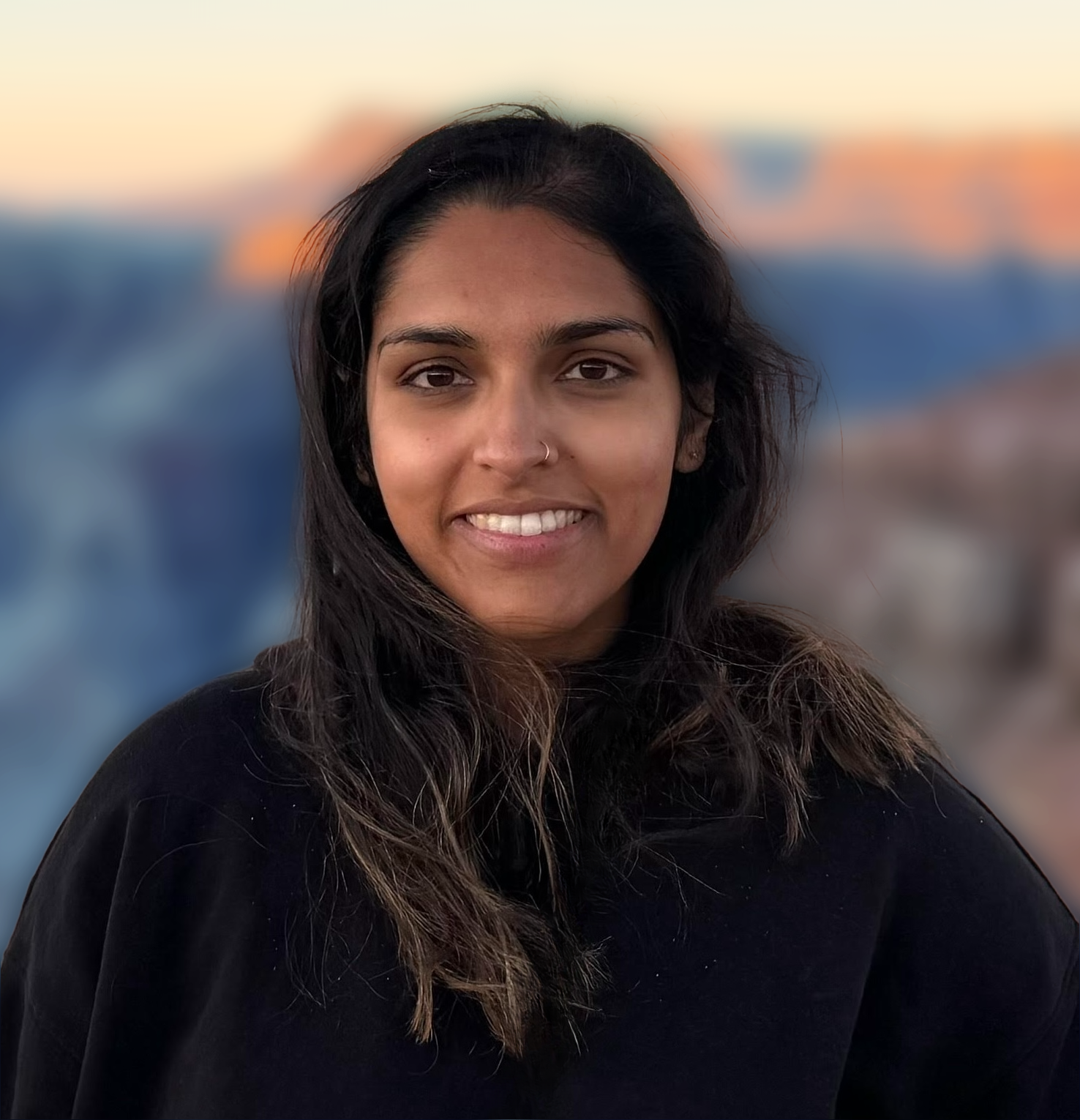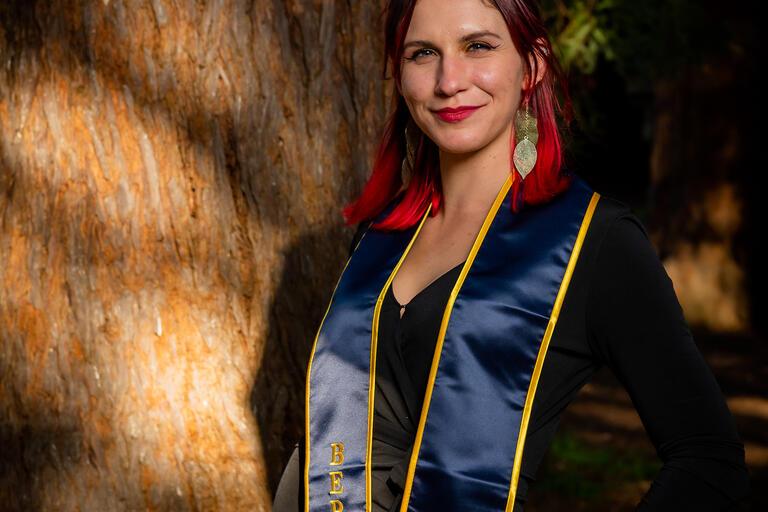
While working her way through community college as a waitress, Eva Smolentseva, formerly Sidlo, B.A. ’21, often felt invisible. With her parents out of the picture from a young age, she navigated higher education alone, shouldering financial burdens and personal challenges. Amid the grind of clearing tables, she held onto a vivid dream: giving the commencement address at a major university.
In May 2021, that dream became a reality. During UC Berkeley’s virtual data science commencement, with over 1,500 viewers watching, Smolentseva delivered a speech that captured the essence of her journey.
“I never anticipated that my programming abilities could have the capacity to give voice and attention to those who have had none,” she said.
This line reflected her work with the Data Science Discovery Program (now the CDSS Discovery Program), where she used data science to amplify the voices of marginalized communities. Years later, as an alum, Smolentseva realizes those words were not just about her work for others.
They told her own story.
The reality of the dream
Smolentseva’s road to Berkeley was fraught with challenges. She juggled 30 to 40 hours of work per week while attending classes and navigating unstable housing. The demands elongated her time at community college and often left her exhausted.
Acceptance to Berkeley marked a breakthrough. She arrived with aspirations of a tech career but faced logistical hurdles. As a transfer student, she needed to complete both lower- and upper-division courses in quick succession to graduate on time. With no internship experience—her applications were often auto-rejected because she hadn’t completed prerequisite courses—she felt behind her peers. Research opportunities also seemed out of reach, as many programs prioritized high GPAs, and Smolentseva’s Berkeley GPA was still in its infancy.
The Data Science Discovery Program, with its emphasis on equitable access to research opportunities, became a turning point for Smolentseva. With no GPA requirement for entry, she was finally able to showcase her talents.
A commitment to one project grew into joining more, each applying data science to address inequities. In one, her team mapped evictions to uncover racial disparities and presented their findings to a New Jersey city council. Their work influenced local policies, preventing landlords from exploiting communities of color.
As a graduating senior, Smolentseva’s dream became a reality. She spoke from a virtual stage to the students of one of the largest majors at Berkeley, reflecting on the community that had uplifted her and the impact of her research. It felt like the culmination of her journey.
But her story was far from over, and it was a lot less clear where the next chapter was heading.
The next chapter
Graduating in 2021 during the pandemic brought unique challenges. Many peers delayed job searches, waiting for ideal opportunities. Smolentseva didn’t have that luxury. Without a financial safety net, she accepted an internship role as a demand planning analyst.
Smolentseva approached the role with determination, leveraging her coding skills and immersing herself in operations—a field she quickly grew to love. Her persistence paid off: the internship turned into a contract which turned into a full-time position. Then, she was recruited by Disney Streaming as a data analyst. Today, she works at USAA, analyzing natural language models.
As her career progressed, it occurred to Smolentseva that people relied more and more on her expertise. She was transforming from someone who often felt in need of help to someone who had the knowledge and skills to confidently provide it.
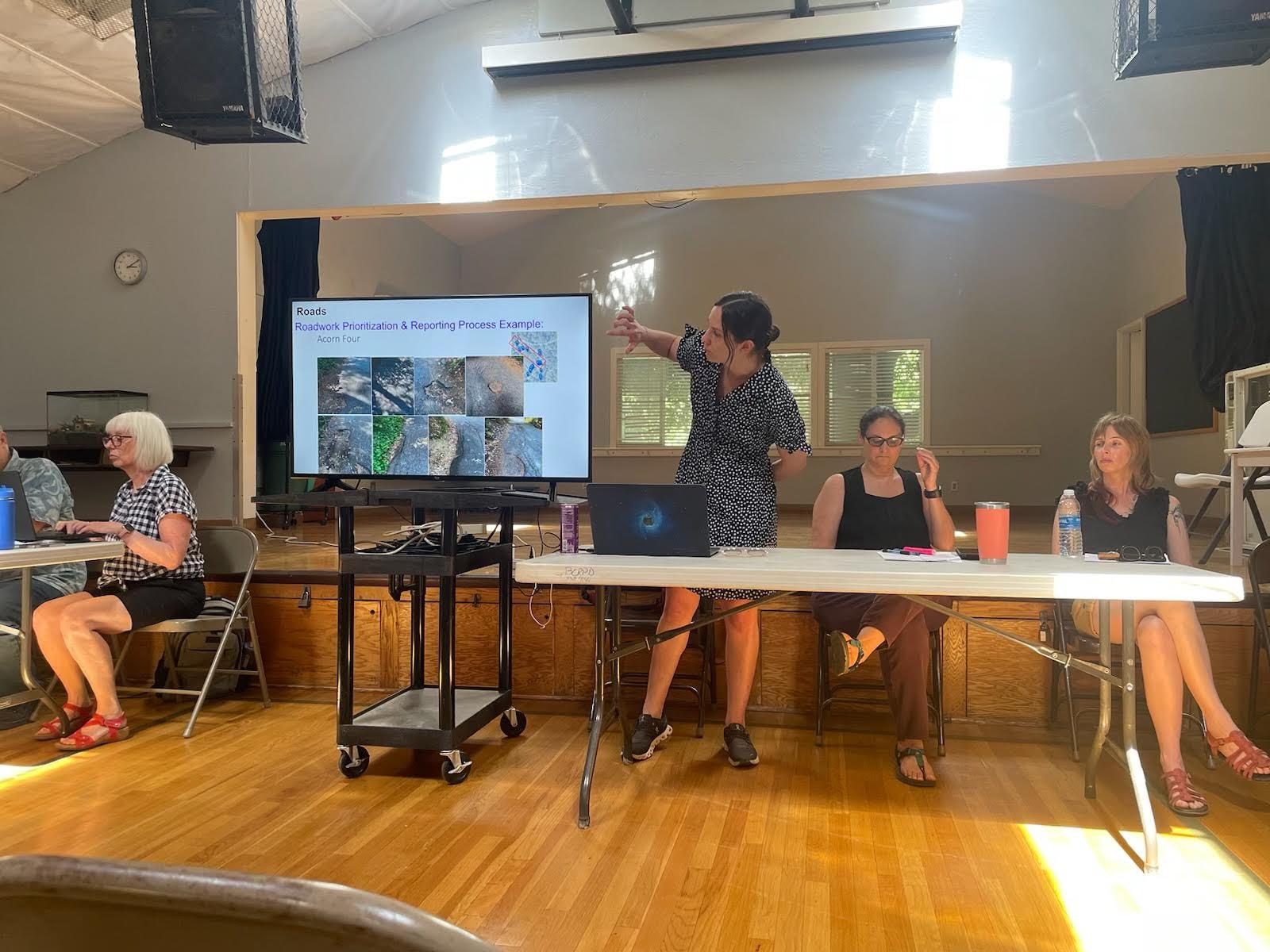
When she moved to Boulder Creek, California, a community still grappling with the long-lasting effects of the CZU Lightning Complex wildfires, Smolentseva saw an opportunity to use her data expertise to make a difference. In addition to joining hands-on efforts, she photographed private roads, then used Python and GPS data to create interactive heatmaps of damage, allowing the community to prioritize repairs within a dwindling budget. She also deployed Wi-Fi-enabled pressure sensors to monitor water tanks remotely, identifying a major leak and conserving vital resources.
Despite being one of the youngest and newest residents, Smolentseva’s contributions earned her the board president role for the Forest Springs Improvement and Maintenance Association.
Voice to the voiceless
As Smolentseva reflects on the part of her journey that fills her with the most pride, she begins by considering the resilience and determination that carried her through. But then she pauses and gives a different answer–one that recognizes what she had really been yearning for back when she fantasized about speaking to an enraptured crowd.
“Honestly, what comes to mind is that I’ve made a life for myself that I would have been envious of pre-Berkeley. I never would have anticipated that I would have a family, a career, and a community where I’m valued.”
Through data science, Smolentseva has continued to bring attention where it’s truly needed. But perhaps the most meaningful voice she’s amplified is her own.
Learn more about Eva Smolentseva's professional and volunteer work on her LinkedIn profile!
For more content about and opportunities for alumni, check out our Data Science Alumni Homepage.

